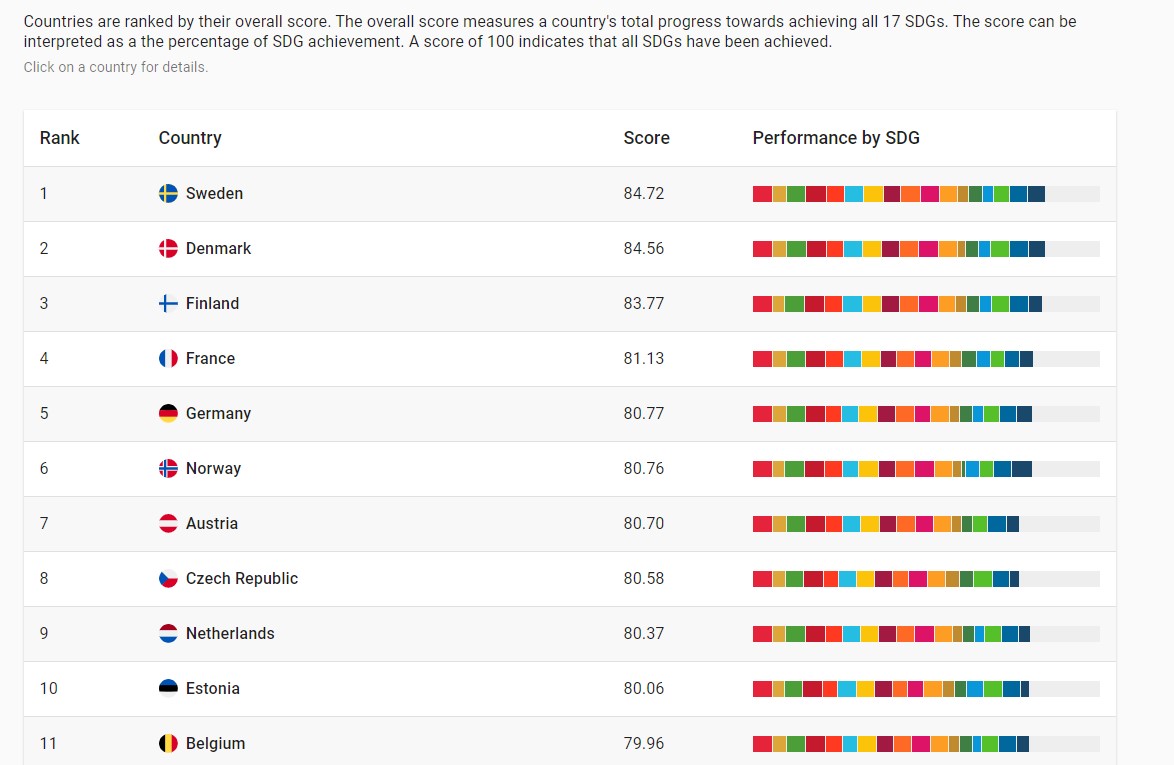This week, the yearly overview of the global scores on the Sustainable Development Goals were published. Not something that catches the headlines immediately. It is however important to see how we are doing with the ‘world sustainability strategy’ in times of COVID-19. And the clear and simple answer is: not good. This is again a sign that building back our old economy is not good enough. We need to build a better economy, redesigned to achieve our global sustainability strategy.
Imperfect, but better than nothing
I always have my hesitations about the Sustainable Development Goals. These 17 goals are in general more a policy agenda than a ‘real’ sustainability agenda. A policy agenda with compromises and sometimes contradictory goals. We know there is (at least globally) a trade-off between economies within ecological boundaries and achieving social inclusiveness. We also know that more economic growth (as in goal 8) will lead to more carbon emissions, more loss of biodiversity et cetera. So, it is rather imperfect at might not go far enough.
But still I think we should embrace those goals. It is the strategy of the world, embraced by the United Nations. It helps to direct policies and investments towards sustainability. It helps to speak a common language about what is good for our future. It helps, with measurable goals, to track development and compare scores across countries. And this is the greatest value of this report: it measures progress and it makes comparisons between countries possible. And if you look in that way, the actual goals and definitions are a little less important: the direction of development matters.
Poor performance
The conclusion is quite clear: the world is nowhere near reaching the sustainable development goals. On top of the ranking are exclusively Western European countries. But even they are far from reaching the SDGs. They score in general particularly bad at the more ecological SDGs such as SDG 12, 13 and 14. Material wellbeing, social inclusion and health come at the cost of environmental degradation apparently. For poorer countries (with in general a lower score) it is the other way around; better scores at environmental SDGs, worse at social ones.
Negative impact COVID-19
In addition to that, the effect of COVID-19 will make the attainment of the SDGs more difficult for all countries. The health crisis and social distancing measures have led to a global economic crisis with massive job losses and major impacts especially on vulnerable groups. This is a significant setback for the world’s ambition to achieve the SDGs, in particular for poor countries and population groups. The chances are high that next years’ report will show a more negative picture of the possibility to attain the SDGs by 2030.
Only slow improvements
And this does not bode well for the longer term perspective. Although there was some improvement in the general SDG-scores over the last years – especially in Asia – this went very slow. Big jumps in the achievement of the Sustainable Development Goals can hardly be expected if we just restore our old economy.
No other option than radical change
I have been writing in several places that a system change is necessary (see here, here). The most important reason is, that our current economic system will not deliver a sustainable economy. No way. We can hope for technological solutions, but there is no proof for it. We can hope for new incremental changes, like a circular economy, but there is no evidence that it really delivers a more sustainable society.
So there is only one solution left. We should not save our old economy. Now is the time to radically shift investments of governments and private parties towards sustainability. This SDG-report once again shows that this is more necessary than ever.
Hans Stegeman, Chief Investment Strategist at Triodos Investment Management




